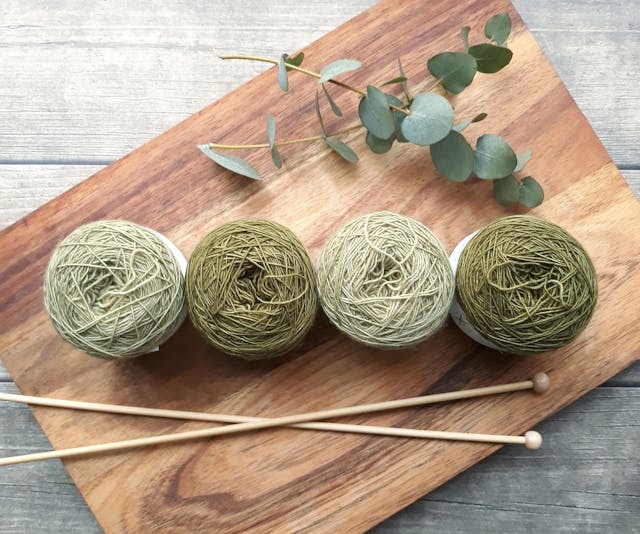The Ultimate Guide to Finding Your Passion: Discovering New Hobbies
Discovering a new hobby can be an exciting and rewarding journey. Whether you’re looking for a creative outlet, a way to relax, or an activity that brings you joy, finding a passion that truly excites you can improve your quality of life. With so many hobbies to explore, it can sometimes feel overwhelming to know where to start. This guide will help you uncover your interests, explore new activities, and ultimately find a hobby that ignites your passion.

Start by Reflecting on Your Interests
Look Inward
The first step in finding a hobby you’re passionate about is to reflect on your current interests. Think about what excites you and what you naturally gravitate toward. Do you love being outdoors? Are you interested in learning new skills? Do you enjoy creative activities, or are you more focused on physical challenges?
By taking some time to consider what you already enjoy doing, you can better identify hobbies that align with your interests. For example, if you love nature, hiking or gardening could be great options. If you're into technology, coding or video game development might spark your curiosity.
Ask Yourself the Right Questions
-
What activities do you find most enjoyable in your free time?
-
Do you have any childhood hobbies you wish to revisit?
-
Are you interested in trying something completely new?
Your answers can help you begin narrowing down your options.
Explore Different Categories of Hobbies
Creative Hobbies
Creative hobbies allow you to express yourself and tap into your imagination. If you find joy in art or creating something from scratch, these might be the perfect fit for you. Some popular creative hobbies include:
-
Painting or Drawing: Explore different mediums like watercolor, oil painting, or sketching.
-
Writing: Try journaling, poetry, short stories, or blogging.
-
Crafting: Knitting, crocheting, scrapbooking, or jewelry making can be therapeutic and fulfilling.
-
Photography: Capture moments and express your creativity through your lens.
Physical Hobbies
Physical hobbies can help you stay active and improve your physical health. These activities range from relaxing exercises to intense workouts. Some ideas to consider are:
-
Yoga or Pilates: Focus on mindfulness, flexibility, and strength.
-
Running or Cycling: Great for building endurance and exploring new places.
-
Martial Arts or Dance: A fun way to stay fit and learn new skills.
-
Team Sports: Soccer, basketball, or volleyball offer social and physical benefits.
Intellectual Hobbies
If you love learning and challenging yourself, intellectual hobbies are a great way to grow mentally. You could dive into subjects like history, science, or literature. Examples include:
-
Reading: Fiction, non-fiction, or a mix of both can offer new perspectives and knowledge.
-
Puzzles and Strategy Games: Brain games like chess, sudoku, or escape room challenges can be both fun and stimulating.
-
Language Learning: Pick up a new language and expand your cultural horizons.
-
Coding and Programming: Learn how to build websites, apps, or software.
Try New Things and Experiment
Step Outside Your Comfort Zone
Sometimes, the best way to discover your passion is to step outside of your routine and try something completely different. Don’t be afraid to experiment with various hobbies to see what excites you the most. Attend a pottery class, go for a hike, take a cooking workshop, or even join a book club. The possibilities are endless!
You may not immediately find your perfect hobby, but by exploring new activities, you'll gain valuable insights into what you enjoy and what you don’t. The key is to stay open-minded and curious as you try new things.
Give Yourself Time to Adjust
It’s important to remember that it may take time to develop a passion for a new hobby. You may not instantly fall in love with something, and that’s okay. Sometimes it takes a few sessions or attempts to get comfortable with an activity before you truly begin to enjoy it.
Connect with Others Who Share Your Interests
Join Communities and Social Groups
One of the best ways to get excited about a hobby is by connecting with others who share your interests. Whether it's a local group or an online community, socializing with people who enjoy the same things can be inspiring and motivating.
-
Clubs or Classes: Many cities offer clubs or community centers that host hobby-based activities. Look for pottery workshops, photography meetups, or knitting circles.
-
Online Communities: There are countless forums, social media groups, and online platforms dedicated to every hobby imaginable. Connecting with others who share your passion can lead to new ideas and provide a sense of belonging.
-
Social Media: Follow people or influencers who specialize in hobbies that interest you. They often share tips, tutorials, and challenges to keep you motivated.
Set Realistic Goals and Track Your Progress
Create Milestones for Growth
Once you’ve found a hobby you’re passionate about, setting goals can help keep you motivated and encourage you to continue learning. For example, if you’ve started painting, aim to finish one painting a month. If you’re learning a new language, set a goal to learn a certain number of words or phrases each week.
Tracking your progress helps you stay focused and gives you a sense of achievement as you work toward your goals. Break large goals into smaller, manageable tasks, and don’t forget to celebrate your accomplishments along the way.

Make It a Regular Part of Your Life
Consistency is Key
To truly develop a passion for something, it’s important to make it a regular part of your life. Schedule time each week to dedicate to your hobby. Whether it’s an hour of writing, practicing a musical instrument, or going for a walk, consistency will help you build a deeper connection with the activity and allow you to see progress over time.
Try to make your hobby an enjoyable part of your routine rather than something that feels like a chore. By integrating it into your lifestyle, you’ll be more likely to stick with it and continue enjoying it long-term.
Conclusion: Embrace the Journey of Discovery
Finding your passion takes time, experimentation, and an open mind. The key is to explore different hobbies, embrace new experiences, and be patient with yourself as you discover what truly excites you. Your passion may be something creative, physical, intellectual, or social—what matters is that it brings you joy, helps you grow, and adds value to your life. So, take that first step and begin your journey toward discovering a new hobby that could just become your next big passion.












